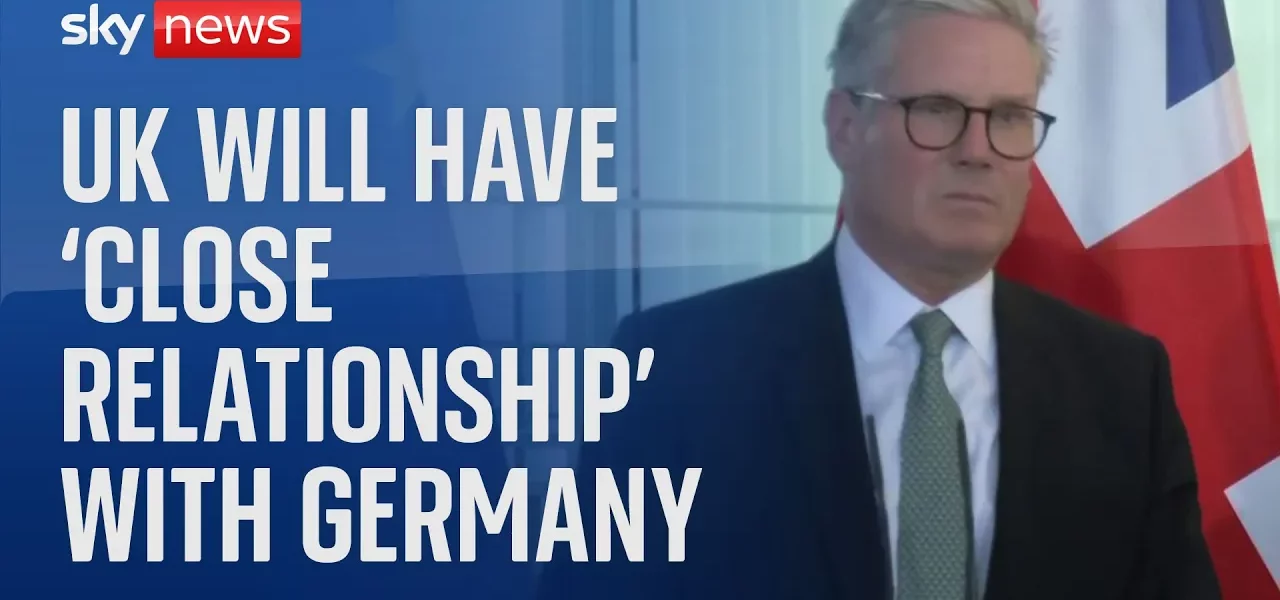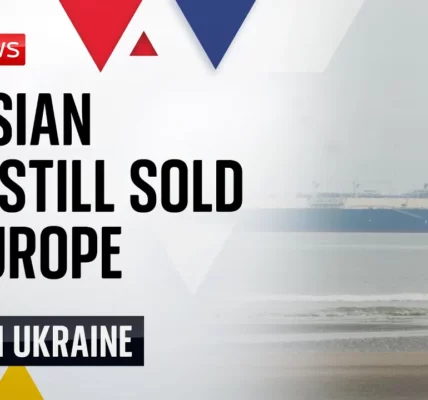UK and Germany: A New Era of Trade Relations

This article delves into the recent dialogues between the UK Prime Minister and the German Chancellor, focusing on trade agreements, bilateral relations, and the potential for youth mobility initiatives post-Brexit.
Introduction
The recent visit of the UK Prime Minister to Berlin marks a significant moment in UK-German relations. As both nations seek to redefine their partnership following Brexit, discussions centered around trade deals, economic cooperation, and youth mobility have taken center stage. This article explores the key points raised during this diplomatic engagement, the implications for UK-EU relations, and the aspirations for a renewed bilateral treaty that promises to enhance cooperation in various sectors.
The Context of the UK-Germany Meeting
As the UK continues to navigate its post-Brexit landscape, the Prime Minister’s visit to Germany highlights a crucial effort to solidify ties with European partners. The focus of the meeting was primarily on establishing a bilateral treaty that can potentially reshape economic and defense collaborations.
Importance of Bilateral Treaties
Bilateral treaties serve as vital instruments for fostering cooperation between nations. The proposed treaty between the UK and Germany aims to:
- Enhance trade relations and economic exchanges.
- Strengthen defense partnerships in response to global challenges.
- Facilitate exchanges in various sectors including technology and culture.
Trade Deals: Opportunities and Challenges
During the discussions, the Prime Minister emphasized the need for better trade deals post-Brexit, despite ruling out rejoining the EU Single Market or Customs Union. The focus now shifts to whether the UK can negotiate favorable terms while operating outside of the EU framework.
The Challenge of Cherry-Picking Trade Terms
The notion of “cherry-picking” trade agreements has been a contentious topic. Key considerations include:
- Understanding the limitations imposed by Brexit.
- Negotiating terms that are mutually beneficial without compromising sovereignty.
- Addressing the concerns of EU partners regarding the UK’s intentions.
Potential Areas for Trade Expansion
Despite the challenges, several areas have been identified for potential growth, including:
- Green technology and sustainability initiatives.
- Digital trade and data sharing frameworks.
- Agri-food products and services.
Youth Mobility: A Catalyst for Change?
The discussion around youth mobility programs has been a focal point, with questions raised about whether such initiatives could facilitate better relationships between the UK and Germany. While the Prime Minister indicated no current plans for a Youth Mobility Scheme, the potential benefits of such programs cannot be overlooked.
Benefits of Youth Mobility Initiatives
Establishing youth mobility could lead to numerous advantages, including:
- Fostering cultural exchange and understanding.
- Enhancing workforce skills and opportunities for young people.
- Strengthening ties between educational institutions.
The Broader European Reset
The Prime Minister’s call for a “reset” with Europe resonates with the ongoing desire for improved relations post-Brexit. This reset aims to address the concerns raised by both the UK and EU member states while fostering a collaborative environment.
Key Areas for Resetting Relations
Several key areas have been identified for improved collaboration:
- Economic cooperation and trade facilitation.
- Joint efforts on security and defense.
- Cultural and academic exchanges to build mutual understanding.
Conclusion
In summary, the recent discussions between the UK Prime Minister and the German Chancellor underscore a pivotal moment in UK-German relations. The emphasis on a bilateral treaty, the challenges of trade negotiations, and the potential for youth mobility initiatives all point towards a future where both nations can work together more closely. As the UK navigates its post-Brexit identity, it is essential to foster these relationships, not only with Germany but across Europe. Engaging in dialogue and forming strategic partnerships will be crucial for the UK’s economic and social landscape moving forward.
For further insights on the evolving UK-EU relations, explore our articles on trade deals and youth mobility programs.
“`




